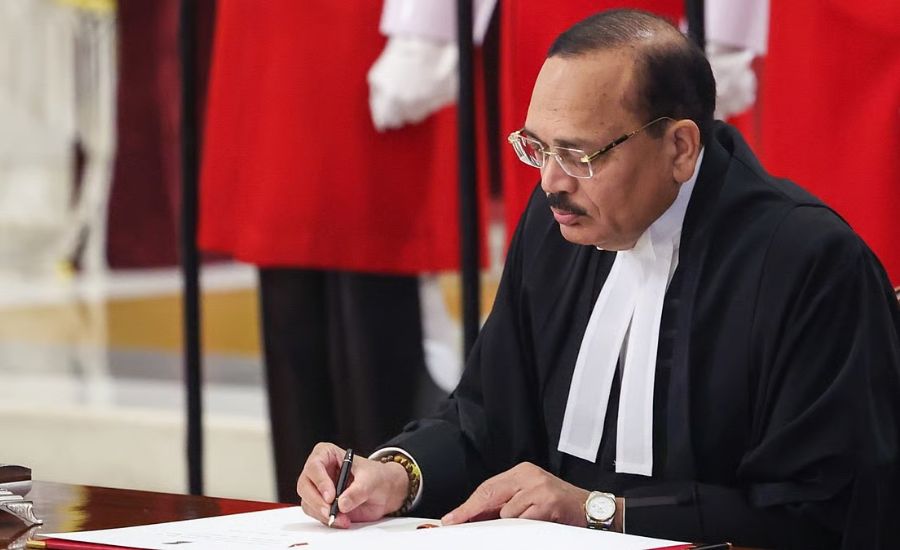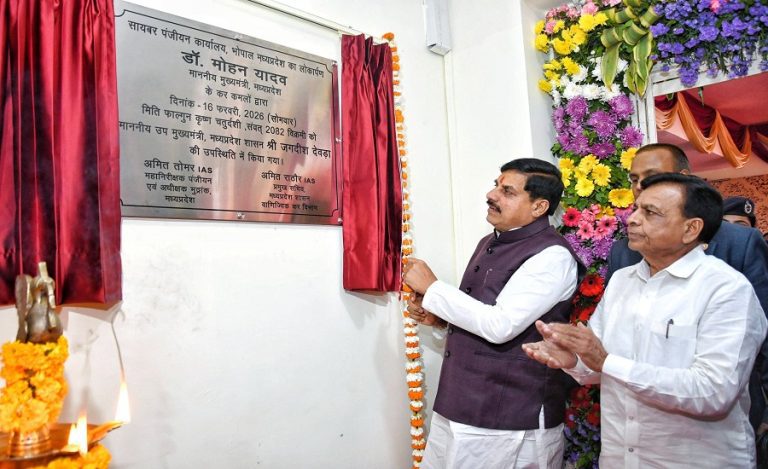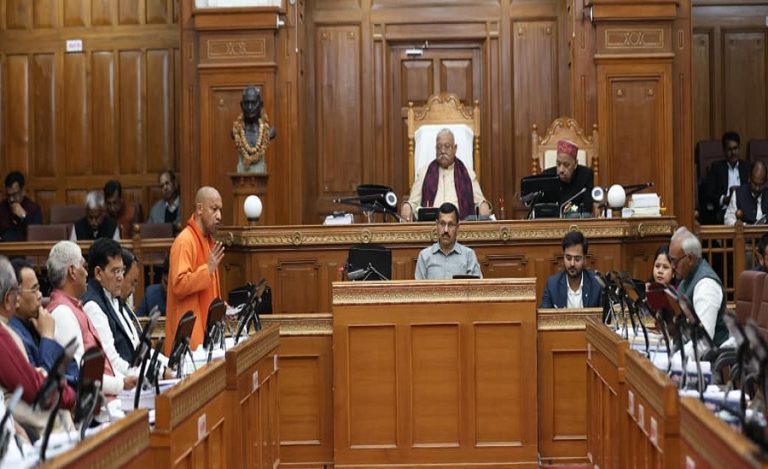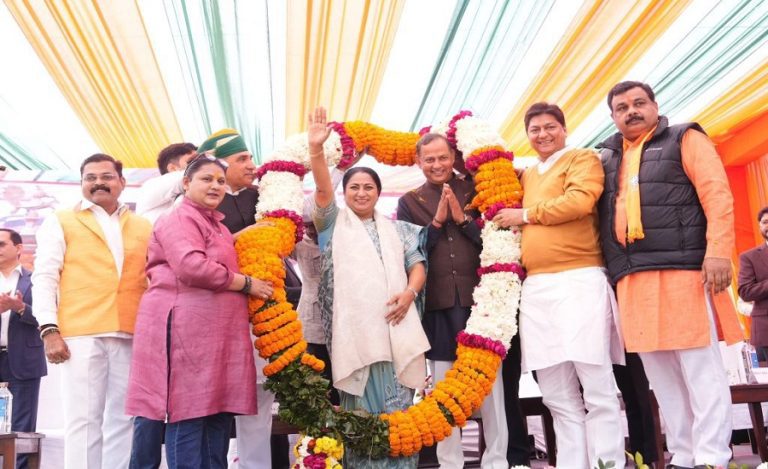Justice Surya Kant was sworn in as the 53rd Chief Justice of India (CJI) on Monday at the Rashtrapati Bhavan. President Droupadi Murmu administered the oath of office in a ceremony attended by senior judges, cabinet ministers, diplomats, and constitutional authorities. Justice Kant took the oath in Hindi, affirming his commitment to uphold the Constitution and discharge his duties with integrity and fairness.
Justice Kant begins his tenure with just over a year in office, as he is set to retire on February 9, 2027. His appointment comes at a crucial time for the judiciary, with several major constitutional matters pending before the Supreme Court.
Rise From Hisar to the Highest Judicial Office
Born on February 10, 1962, in Hisar, Haryana, Justice Surya Kant’s journey from a small-town advocate to the country’s top judge reflects a steady rise powered by discipline, sharp legal acumen, and an unwavering belief in constitutional values.
He completed his graduation and earned his LLB from Maharishi Dayanand University, Rohtak, in 1984. He began practising in the Hisar district court and moved to the Punjab and Haryana High Court in 1985, where he built a reputation as a persuasive and principled lawyer.
- In 2000, he became the youngest Advocate General of Haryana.
- In 2001, he was designated a senior advocate.
- On January 9, 2004, he was elevated as a Judge of the Punjab and Haryana High Court.
- In October 2018, he was appointed Chief Justice of the Himachal Pradesh High Court.
- On May 24, 2019, he took oath as a judge of the Supreme Court of India.
Over the years, he has emerged as one of the most articulate and progressive judicial voices in the country.
A Judge Known for Bold, Progressive, and Constitution-Anchored Judgments
During his Supreme Court tenure, Justice Surya Kant has delivered several far-reaching judgements with significant implications for governance, democracy, national security, and individual rights. Here are his 10 most impactful decisions:
1. Article 370 Verdict
Justice Kant was part of the historic Constitution Bench that upheld the abrogation of Article 370, marking one of the most consequential decisions in recent constitutional history.
2. Suspension of Sedition Law
In a groundbreaking ruling, he was part of the bench that effectively put Section 124A (sedition) on hold, directing the Centre and states not to register new FIRs until the law was re-examined.
3. Pegasus Spyware Case
Justice Kant played a central role in the Pegasus hearings, emphasising that national security cannot be used as a blanket shield and appointing a technical committee to investigate the surveillance allegations.
4. Bihar Voter List Revision
He directed the Election Commission to disclose details of 6.5 million voters removed during Bihar’s Special Intensive Revision, asserting the need for transparency in electoral processes.
5. Gender Justice in Local Governance
Justice Kant reinstated a woman sarpanch unlawfully removed from office, issuing a stern warning against gender-based exclusion in political structures.
6. Reservation for Women in Bar Associations
In a landmark move promoting gender equity in the legal field, he mandated one-third reservation for women in bar associations, including the Supreme Court Bar Association.
7. Presidential Reference on Governor’s Powers
Justice Kant is currently part of the Constitution Bench interpreting the powers of Governors and the President regarding state legislation—a case with deep political implications.
8. PM Modi Convoy Security Breach Case (2022)
He served on the bench that appointed a panel led by Justice Indu Malhotra to probe the major security lapse during the Prime Minister’s Punjab visit.
9. One Rank One Pension (OROP)
He upheld the constitutional validity of OROP while continuing hearings on gender equality and permanent commission matters involving armed forces personnel.
10. Case Involving Podcaster Ranveer Allahbadia
Justice Kant issued strong observations on responsible speech, making it clear that freedom of expression does not extend to derogatory or socially corrosive remarks.
Contributions Beyond the Courtroom
Outside his judicial duties, Justice Surya Kant has actively contributed to legal reform and education. He served on the governing body of the National Legal Services Authority (NALSA) for two consecutive terms (2007–2011) and has been involved with numerous committees of the Indian Law Institute. He has also represented India in multiple national and international legal forums, shaping discourse on justice delivery and constitutional governance.
A New Chapter for the Supreme Court
Justice Surya Kant’s elevation as the 53rd CJI marks the beginning of a tenure expected to focus strongly on:
- judicial reforms
- constitutional clarity
- gender parity
- transparency in elections
- protecting civil liberties
- strengthening institutional accountability
With his track record of principled and progressive judgements, Justice Surya Kant steps into the top judicial office as a respected, balanced, and reform-oriented leader of the Indian judiciary.




























